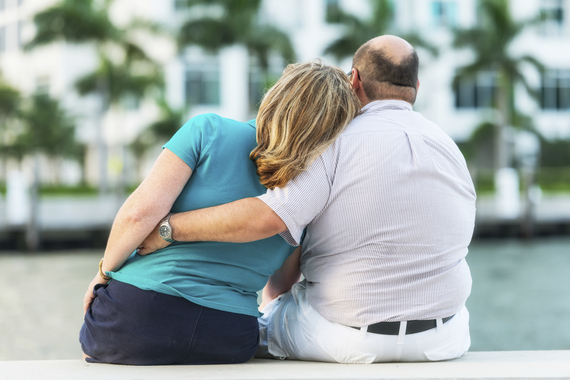So maybe you're not running for President and in the middle of Miss Piggy-gate. Or a Playboy Playmate outrageously Snapchatting a gym photo of an unsuspecting and fully naked woman whose figure is not quite up to her standards. Or a comedian posting an Internet-exploding "Dear Fat People" video ordering viewers to lose weight so she "can sleep better."
No, you might not be that overt, public or crude. But you might be involved in "fat-shaming" all the same - and worse yet, directing it at the people you love the most. Because according to a Harris survey commissioned by Nutrisystem, most such hurtful incidents are inadvertently - and shockingly -- aimed at our own family members. The poll revealed that more than a third of Americans have experienced fat-shaming. And two-thirds of targets say it involved someone in their family.
The biggest offenders? Spouses, parents and siblings. What form does this unintentional fat-shaming take? It begins with the fact that family members often mean well. In attempting to "help" they might drop a careless comment about dietary choices. ("Do you know how many calories are in that?") Or a remark about how clothes look or fit or a poorly thought-out observation about health consequences of being overweight. ("You know, diabetes runs in our family.")
Perhaps the worst thing about all this overt and inadvertent fat-shaming: it's actually counterproductive. A string of studies reveals that size discrimination can increase stress, drive depression and binge eating - all contributors to weight gain - and discourage physical activity by undermining self-confidence.
Now, no one suggests that society and families should affirm being overweight and that's where things get delicate. The whole "fat shaming" narrative in the news may be making headlines, but the conversations taking place at home, are even harder. They are fraught with emotion and landmines that have nothing to do with voter turnout or lawsuits, but everything to do with how we have honest and constructive conversations with one another about weight. The goal should be to ensure that something so integral to good health doesn't become taboo.
As is so often the case, it starts with children whom research suggests can be influenced by parents from a very young age in their attitudes toward weight. And as if we didn't have enough parenting pressure, this requires addressing our own behavior. Good news: it's never too late to model healthy behavior and the old adage of actions speaking louder than words is worth remembering. It's also less subjective. It's striking to me, for instance, that if we tell a slim child one piece of pie is enough, no one thinks anything of it. If we tell a heavier child the exact same thing, we may sound harsh and worry that we're inducing shame. The truth is people who struggle with weight -- teens included - don't need verbal hints, they need solutions.
No doubt that's easier said than done, but it doesn't take long to get on a roll. Most people vastly overestimate the amount of weight they need to lose to start feeling better. They'll tell you they want to lose 50 or 60 pounds, but the truth is they'll start feeling significantly better after losing 6-8 pounds and may be less inclined to feel shame and more open to dialogue around healthy weight loss and maintenance.
With roughly two-thirds of U.S. adults and one-third of children and adolescents overweight or obese, it's about time we get fat shaming out of both the headlines and our homes and start speaking and acting more constructively.



